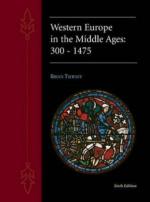|
This section contains 747 words (approx. 3 pages at 300 words per page) |

|
The Schoolmaster Eriugena.
In the centuries separating Boethius and the Age of Charlemagne (who built the kingdom of the Franks into an empire in the ninth century) there was little philosophical activity. That was, however, soon to change. One of the most fruitful decrees of the newly crowned emperor was to establish a school at every cathedral in his realm, which extended throughout what is now France, Germany, northern Italy, and parts of the Low Countries. Intended for the education of the clergy, the focus in these schools was on basic grammatical and mathematical skills—in other words, the "three R's." The creation of schools, however, meant a need for teachers. It was thus that the Celtic monk from the remote West of Ireland, John Scotus Eriugena, was brought to the court of Charlemagne's grandson, Charles the Bald...
|
This section contains 747 words (approx. 3 pages at 300 words per page) |

|




